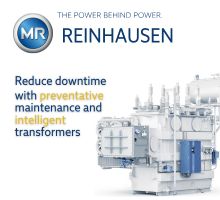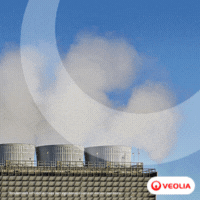Danieli Corus Commissions India's Largest Blast Furnace
08/08/2013 - Danieli Corus BV has commissioned the greenfield blast furnace No. 5 built for SAIL (Steel Authority of India Limited) at its Rourkela Steel Plant in Odisha, India.
This blast furnace was built by a consortium consisting of Danieli Corus and Tata Projects Limited and is currently India’s largest blast furnace. The first hot metal was tapped after 27 hours.
It is a major milestone for Danieli Corus for having built the largest operating blast furnace, according to the Hoogovens philosophy, in this important market. The furnace is named after the Hindu goddess Durga and was designed to European standards and based on European technology. It was built to produce around 8,000 tonnes of hot metal per day for a twenty year campaign and is part of a € 1.75 million expansion program at the Rourkela Steel Plant. A “pooja” was performed as part of the commissioning of blast furnace No. 5 (Durga): According to Hindu tradition, coconuts were cracked and the contents sprinkled over the furnace’s shell to honor the goddess Durga. Engineering, supplies and construction of the furnace took five years to complete.
This is the fourth greenfield blast furnace project completed by Danieli Corus in India and based on the Hoogovens philosophy. Previously, three smaller blast furnaces were built for private companies; the one operated by Jindal Steel & Power Ltd. has been the country’s best performing blast furnace over the past years. In addition, Danieli Corus has executed substantial revamp and repair projects on the blast furnaces operated by Tata Steel at its Jamshedpur plant. An order for a fifth greenfield project in India was received from the mining company NMDC in 2011. This company is diversifying into the steel industry and is developing a new integrated plant at Nagarnar. Danieli Corus is currently building the blast furnace, which will be larger than the Durga Furnace operating at Rourkela. This furnace is expected to be commissioned in 2015.
Steel demand in India is vast, given the country’s economic growth of 5.3% per annum. Steel consumption per capita remains substantially lower than that in China, for example. Infrastructural and urban development projects feed India’s hunger for steel and the country remains an important market for Danieli Corus, accounting for around 50% of the company’s turnover. Danieli Corus India currently employs 45 people and continues to grow. The two most recent greenfield blast furnace projects in India have realized about 350,000 man hours (equivalent to more than 200 man years) of work to the EU.
Danieli Corus is an engineering and consulting company active in the global steel industry. Danieli Corus offers services for all aspects in iron and steel making, ranging from studies, greenfield and revamp projects to process optimization in existing plants.
The company has operational offices in 3 countries and is represented in 39. Danieli Corus is owned by the Italian equipment manufacturer Danieli and Tata Steel Europe. Danieli Corus’s roots are in the Corus IJmuiden integrated steel works; the company was established to market technological know–how acquired over a long period of time. The company now operates fully independently of the parent companies.
Tata Projects was established in 1979 and now has more than 2,000 employees. The company has a solid track record in the construction of power plants and in the oil and gas industry. Since 2008, Tata Projects also serves the Indian steel industry in the supply of turn–key blast furnace plants in consortium with Danieli Corus.
Steel Authority of India Ltd. (SAIL) is a vast steel company run by the Government of India. It is the successor of the private company Hindustan Steel Private Limited, established in 1954, of which the President of India owned 100% of the shares on behalf of the country’s population.
SAIL produced 13.5 million tonnes of crude steel in 2012, making it the 24th largest steel producer in the world. The company operates integrated steel plants in Bhilai, Bokaro, Durgapur, Rourkela and Burnpur and is expected to produce 24.6 million tonnes of crude steel per year after completion of the current expansion program.



-(1)-Reinhausen-(1).jpg?lang=en-US&ext=.jpg)






